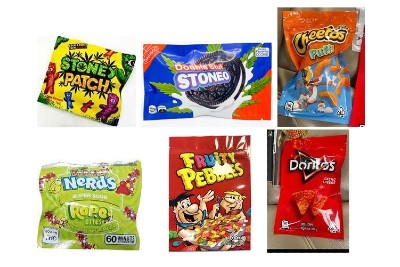
The Virginia Department of Agriculture and Consumer Services and Office of the Attorney General of Virginia are initiating efforts to address the retail sale of certain products that contain tetrahydrocannabinol (THC) in response to provisions included in the budget recently passed by the General Assembly and signed by Virginia Gov. Glenn Youngkin.
VDACS will assist businesses that wish to sell hemp-derived cannabinoids in compliance with the law.
“The VDACS regulatory response to chemically-synthesized cannabinoids in foods and beverages is to educate food manufacturers and retail food establishments of the law and encourage voluntary compliance. Once regulatory options are exhausted, the case could be referred to a Commonwealth’s Attorney for further enforcement,” said Joseph Guthrie, VDACS Commissioner.
VDACS’ Food Safety Program will distribute a communication to Virginia food manufacturers, retail food establishments, and registered industrial hemp processors advising that all products intended for human consumption are considered food or drink and must meet the requirements of the Virginia Food and Drink Law. Any chemically-synthesized cannabinoid is considered a food adulterant and any person who manufactures, sells, or offers for sale a chemically-synthesized cannabinoid as a food or beverage is in violation of the Virginia Food and Drink Law.
VDACS’ communication will also advise recipients that additional labeling regulations are pending as a result of the budget language and that, once in effect, these regulations will also apply to any industrial hemp extract intended for human consumption that contains THC.
With the provisions provided in the budget, VDACS inspectors will have enhanced ability to identify retail locations selling industrial hemp extracts or food containing industrial hemp extracts that have not been inspected by its Food Safety Program.
With limited exceptions, these locations must obtain a food and drink permit from VDACS in order to remain in operation.
VDACS’ communication will advise that any chemically-synthesized cannabinoid is a food adulterant and any person who manufactures, sells, or offers for sale a chemically-synthesized cannabinoid, including delta-8 THC, as a food or beverage is in violation of the Virginia Food and Drink Law.
An industrial hemp extract that has a THC concentration of no more than 0.3 percent, is produced by a manufacturer that has been inspected by the responsible food regulatory agency in the location in which the extract is produced, and does not exceed established contaminant limits may be distributed in Virginia.
When VDACS identifies the production or sale of a food containing an adulterant, it will encourage voluntary compliance by asking the business to discontinue the practice. If voluntary compliance is not achieved, VDACS will utilize various escalating enforcement tools to achieve compliance, with the highest penalty prescribed under Virginia law a Class 1 misdemeanor.
“As THC-infused edibles become commonplace, some distributors have started advertising their products to look like popular candy and snack items. Their deceiving appearance and packaging can confuse young children who come across them and have led to an increase in accidental consumption, putting their health at risk. I look forward to collaborating with VDACS to address this growing issue,” said Virginia Attorney General Jason Miyares.
The OAG will enforce the new provisions of the Virginia Consumer Protection Act (VCPA) that are intended to inform adult consumers about the THC-containing products they are purchasing and help prevent children from consuming potentially intoxicating products:
- Businesses may not offer for sale or sell an edible or inhaled product that contains THC to a person younger than 21.
- Businesses may not offer for sale or sell an edible or inhaled product that contains THC unless the product is packaged and labeled as required by the VCPA.
- Businesses may not offer for sale or sell an edible or inhaled product that contains THC in a package that mimics a trademarked brand or other famous or identifying mark.
- The VPCA prohibits businesses from manufacturing, offering for sale at retail, or selling at retail a food containing an industrial hemp extract or substance containing THC that depicts or is in the shape of a human, animal, vehicle, or fruit.










